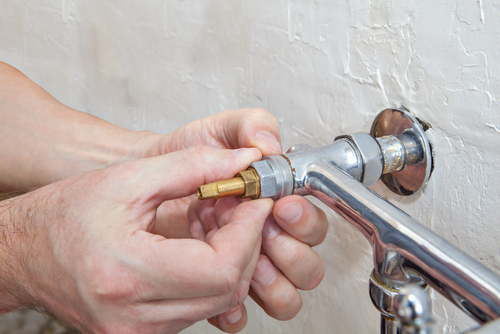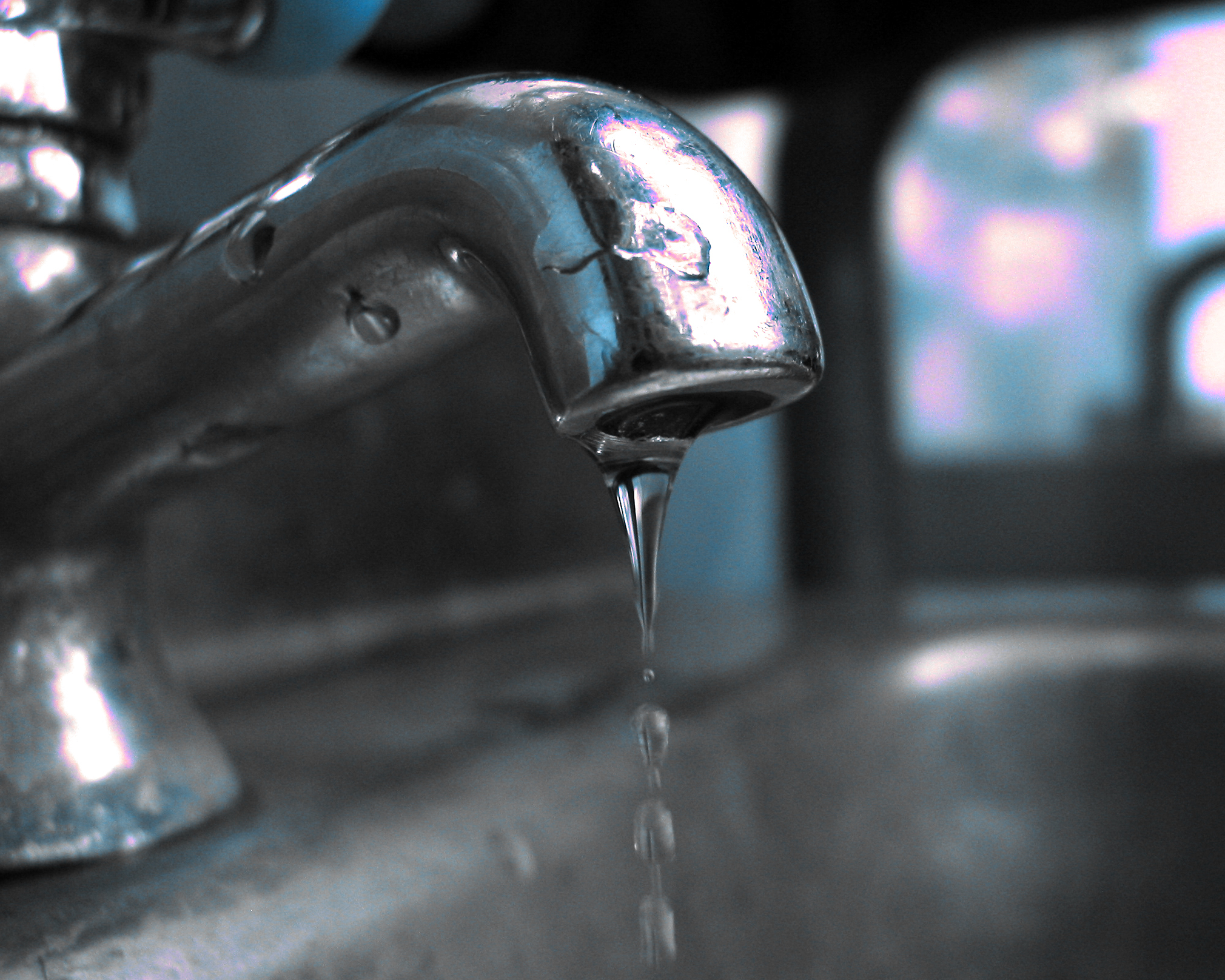Our Importance of Addressing a Leaking Faucet
Our Importance of Addressing a Leaking Faucet
Blog Article
Were you searching for critical information around 4 Common Reasons for a Leaky Faucet?

Leaking faucets might look like a minor hassle, however their effect exceeds just the inconvenience of the sound. From wasting water to sustaining unneeded economic prices and wellness dangers, disregarding a dripping tap can bring about various repercussions. In this short article, we'll explore why it's essential to resolve this typical household problem quickly and properly.
Waste of Water
Environmental Effect
Dripping faucets add considerably to water waste. According to the Environmental Protection Agency (EPA), a single tap trickling at one drip per secondly can waste greater than 3,000 gallons of water per year. This not only stress water resources however additionally affects ecosystems and wildlife based on them.
Financial Costs
Increased Water Bills
Beyond the environmental impact, trickling taps can pump up water bills considerably. The accumulated wastage in time converts into greater energy costs, which could have been stayed clear of with prompt fixings.
Prospective Property Damages
Furthermore, long term leaking can result in damage to fixtures and surfaces surrounding the tap. Water buildup can create discoloration, rust, and even structural issues if left ignored, leading to extra repair service expenses.
Wellness Problems
Mold and Mildew Development
The consistent presence of wetness from a trickling faucet produces a perfect atmosphere for mold and mildew and mildew growth. These fungis not only jeopardize interior air quality but likewise present wellness threats, especially for individuals with breathing problems or allergies.
Waterborne Illness
Stagnant water in trickling taps can come to be a breeding ground for germs and various other microorganisms, increasing the danger of waterborne diseases. Impurities such as Legionella bacteria grow in stagnant water, possibly resulting in major ailments when ingested or breathed in.
DIY vs. Expert Fixing
Benefits and drawbacks of DIY Repair Work
While some might attempt to repair a trickling faucet themselves, do it yourself repairs feature their own collection of obstacles. Without appropriate understanding and devices, DIY attempts can intensify the concern or bring about insufficient repairs, prolonging the problem.
Advantages of Working With a Professional Plumber
Working with a specialist plumber makes sure that the underlying reason for the trickling tap is dealt with effectively. Plumbers possess the expertise and equipment to diagnose and fix faucet concerns efficiently, saving time and decreasing the danger of further damages.
Step-by-Step Overview to Taking Care Of a Dripping Faucet
Tools Needed
Before trying to deal with a trickling faucet, gather the needed devices, consisting of an adjustable wrench, screwdrivers, substitute components (such as washers or cartridges), and plumber's tape.
Typical Faucet Issues and Their Solutions
Identify the kind of faucet and the certain concern causing the drip. Typical troubles include damaged washing machines, rusty valve seats, or defective O-rings. Describe maker guidelines or online tutorials for detailed guidance on repairs.
Preventive Measures
Routine Maintenance Tips
To prevent leaking faucets, carry out routine maintenance such as cleaning up aerators, evaluating for leakages, and replacing worn-out parts quickly. Furthermore, take into consideration installing water-saving gadgets or upgrading to much more effective components.
Importance of Prompt Repairs
Addressing trickling taps as quickly as they're discovered avoids further water wastefulness and potential damages, eventually saving both water and cash over time.
Impact on Home Worth
Understanding of Well-Maintained Residential Or Commercial Property
Keeping a building in good condition, including resolving maintenance problems like trickling faucets, improves its regarded value and worth amongst possible purchasers or tenants.
Influence on Resale Value
Properties with well-kept plumbing components, including faucets, command greater resale worths in the real estate market. Dealing with leaking taps can add to a positive perception throughout building inspections and negotiations.
Environmental Obligation
Private Contribution to Preservation
Taking duty for repairing leaking faucets lines up with broader initiatives toward water preservation and ecological sustainability. Every person's activities collectively make a considerable impact on preserving priceless resources.
Lasting Living Practices
By focusing on timely repairs and taking on water-saving routines, individuals add to lasting living techniques that benefit both existing and future generations.
Final thought
Addressing a trickling faucet goes beyond simple comfort; it's a vital action towards preserving water, lowering economic prices, and protecting health and wellness and property. Whether with do it yourself repairs or professional help, doing something about it to deal with dripping taps is a little yet impactful method to advertise responsible stewardship of resources and contribute to a healthier, much more lasting future.
How to Fix a Leaky Faucet: Step-by-Step Repair Guide
A leaky faucet may seem like a simple annoyance, but if it's not fixed promptly, that leak could cost hundreds to potentially thousands. From water damage to mold, mildew, and high water bills, even a tiny leak can be catastrophic if left unattended. Damage like this can even affect the overall value of your home, so it's important to take the right approach for leaky faucet repair. You may need the help of a plumber in some cases, but we've got a few tips you can try on how to fix a leaky faucet before calling the pros.
Four Faucet Types
When you're learning how to fix a leaky faucet, the first step is knowing what kind of faucet you're working with! There are four common types.
Cartridge Faucets
Cartridge faucets come in one- or two-handled varieties. In one-handled cartridge faucets, hot and cold water combines in a single cartridge. In the two-handled versions, hot and cold water are controlled separately and mixed in the faucet.
Ball Faucets
Ball faucets have a single lever you push up and down to adjust the pressure and rotate to change the temperature. A slotted metal ball controls the amount of water allowed into the spout.
Compression Washer Faucets
They're the oldest type of faucet, but they're still used in many homes — especially older ones. Compression faucets have two separate handles that, when turned, raise or lower the washer that seals a water valve. This valve stops water from flowing through the faucet when it is turned off.
Disc Faucets
Disc faucets rarely need to be repaired due to their maintenance-free design. The water flow is controlled by two discs — the upper one raises and lowers against a fixed lower disc, creating a watertight seal. If your disc faucet starts leaking, you may need to replace the seals or clean residue buildup from the inlets.
Fixing a Leaky Faucet
Step 1: Turn Off the Water
Whether you're learning how to fix a leaky bathtub faucet or how to fix a leaky kitchen faucet, always turn off the water supply to your working area when you're fixing a leak. The last thing you want is a flood added to your list of things to fix.
Look for the shutoff valves below your sink or around the tub and turn them clockwise to stop the water flow. If your faucet doesn't have shutoff valves, you may need to turn off the water for the whole house. Check to make sure it's off by turning the faucet on. If nothing comes out, you're ready to start the repair.
Step 2: Take Apart the Faucet
How you disassemble your faucet depends on the type of fixture you have. You can use a flathead screwdriver to remove the caps on top of the handle or handles for cartridge and compression faucets. Inside, you should see handle screws. Unscrew these with a screwdriver to remove the handle.
Disc- and ball-style faucets will typically have an inlet screw near the handle, and removing that will reveal the interior of the faucet.
Detach the Valve Stem
For cartridge- and compression-style faucets, you'll see the inner valve stem or cartridge once you remove the faucet handles. If you have a compression faucet, unscrew the brass valve stem. If you have a cartridge faucet, pull out the cartridge. If your cartridge has been in place for a while, it may require some tools or extra force to remove it due to mineral deposits.
Examine and Replace Parts
Once you've removed the parts, check them out to confirm what needs to be replaced. You may see corroded rubber washers, O-rings, stems, or cartridges. On a ball-style faucet, check the seats and springs for damage.
If you need to repair a leaky disc faucet, check the inlet and seals on the lower disc.
Once you determine what parts must be replaced, visit your local hardware store. Bring the damaged parts with you to ensure you can purchase the correct components to replace them.
Clean Valves and Faucet Cavity
If you've removed a stem or cartridge, you may notice mineral buildup in the faucet's threads. Use white vinegar to clean the valve seat by soaking it for a few minutes, then scrub it away with a soft toothbrush and rinse with warm water. You can also clean the interior of the faucet in the same way.
Reassemble the Faucet
Once your faucet is cleaned and the required parts have been replaced, it's time to reassemble it. Put the pieces back together and slowly turn the water supply back on. Doing this slowly is crucial because too much initial water pressure can damage the new hardware you've just installed.
https://homewarranty.firstam.com/blog/how-to-fix-leaky-faucet

I ran across that page about Water Dripping from Faucet: Why and How to Fix while doing a search on the search engines. Do you know about another person who is excited about the niche? Please feel free to share it. We value reading our article about 4 Common Reasons for a Leaky Faucet.
Report this page